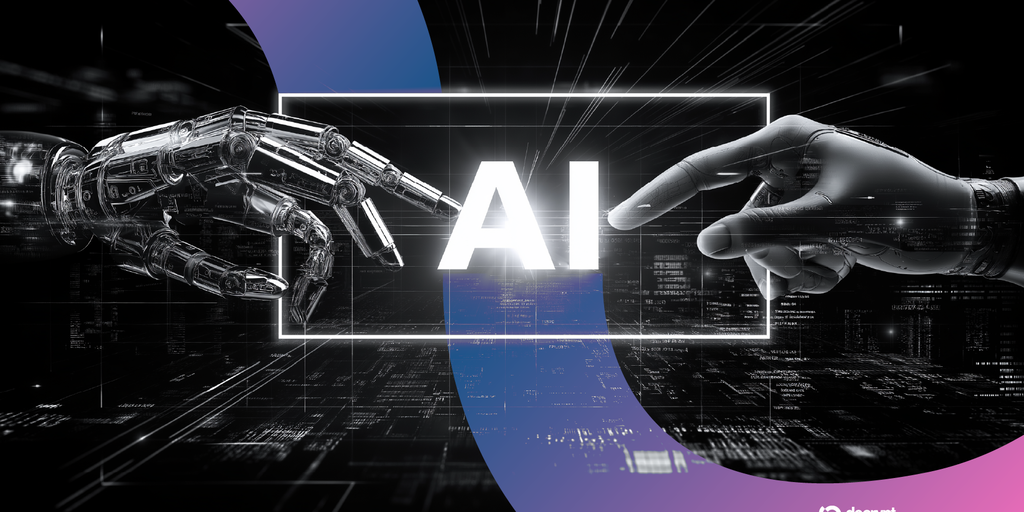In brief
AI still struggles to understand negation, posing risks in critical domains like healthcare.
An MIT study found that vision-language AI, in particular, can’t reliably grasp negative statements.
Experts warn that AI’s failure to process “no” and “not” could lead to real-world mistakes.
AI can diagnose disease, write poetry, and even drive cars—yet it still struggles with a simple word: “no.” That blind spot could have serious consequences in real-world applications, like AI built around healthcare.
According to a new study led by MIT PhD student Kumail Alhamoud, in collaboration with OpenAI and the University of Oxford, failure to understand “no” and “not” can have profound consequences, especially in medical settings.
Negation (for example, “no fracture,” or “not enlarged”) is a critical linguistic function, especially in high-stakes environments like healthcare, where misinterpreting it can result in serious harm. The study shows that current AI models—such as ChatGPT, Gemini, and Llama—often fail to process negative statements correctly, tending instead to default to positive associations.
The core issue isn’t just a lack of data; it’s how AI is trained. Most large language models are built to recognize patterns, not reason logically. This means they may interpret “not good” as still somewhat positive because they identify “good” with positivity. Experts argue that unless models are taught to reason through logic, rather than just mimic language, they’ll continue to make slight, yet dangerous mistakes.
“AI is very good at generating responses similar to what it’s seen during training. But it’s really bad at coming up with something genuinely new or outside of the training data,” Franklin Delehelle, lead research engineer at zero-knowledge infrastructure company Lagrange Labs, told Decrypt. “So, if the training data lacks strong examples of saying ‘no’ or expressing negative sentiment, the model might struggle to generate that kind of response.”
In the study, researchers found that vision-language models, designed to interpret images and text, show an even stronger bias toward affirming statements, frequently failing to distinguish between positive and negative captions.
“Through synthetic negation data, we offer a promising path toward more reliable models,” the researchers said. “While our synthetic data approach improves negation understanding, challenges remain, particularly with fine-grained negation differences.”
Despite ongoing progress in reasoning, many AI systems still struggle with human-like reasoning, especially when dealing with open-ended problems or situations that require deeper understanding or “common sense.”
“All LLMs—what we commonly refer to now as AI—are influenced, in part, by their initial prompt. When you’re interacting with ChatGPT or similar systems, the system is not just using your input. There is also an internal or ‘in-house’ prompt that’s been preset by the company—one that you, the user, have no control over.” Delehelle told Decrypt.
Delehelle highlighted one of AI’s core limitations: its reliance on patterns found in its training data, a constraint that can shape—and sometimes distort—how it responds.
Kian Katanforoosh, adjunct professor of Deep Learning at Stanford University and founder of the skills intelligence company Workera, said that the challenge with negation stems from a fundamental flaw in how language models operate.
“Negation is deceptively complex. Words like ‘no’ and ‘not’ flip the meaning of a sentence, but most language models aren’t reasoning through logic—they’re predicting what sounds likely based on patterns,” Katanforoosh told Decrypt. “That makes them prone to missing the point when negation is involved.”
Katanforoosh also pointed out, echoing Delehelle, that how AI models are trained is the core problem.
“These models were trained to associate, not to reason. So when you say ‘not good,’ they still strongly associate the word ‘good’ with positive sentiment,” he explained. “Unlike humans, they don’t always override those associations.”
Katanforoosh warned that the inability to interpret negation accurately isn’t just a technical flaw—it can have serious real-world consequences.
“Understanding negation is fundamental to comprehension,” he said. “If a model can’t reliably grasp it, you risk subtle but critical errors—especially in use cases like legal, medical, or HR applications.”
And while scaling up training data might seem like an easy fix, he argued that the solution lies elsewhere.
“Solving this isn’t about more data, but better reasoning. We need models that can handle logic, not just language,” he said. “That’s where the frontier is now: bridging statistical learning with structured thinking.”
Edited by James Rubin
Generally Intelligent Newsletter
A weekly AI journey narrated by Gen, a generative AI model.

